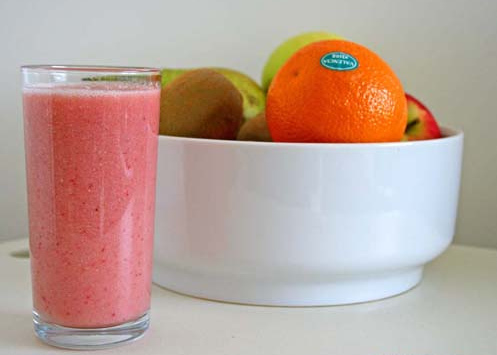
After your DIEP Flap Surgery, your body needs the right fuel to heal properly to maintain good health and avoid complications. A healthy diet, packed with vitamins and minerals, will help expedite the healing process, increase energy levels and strength, and maintain weight, while decreasing the risk of infection.
Here are some foods to include in diet, as well as some to avoid, after your DIEP flap procedure:
Have a plan. Take time and create a menu for the week after having DIEP Flap Surgery. Maybe even prepare some meals and freeze them. Focus on whole foods. Processed foods tend to have higher amounts of fat, sugar, salt, chemical additives, and far less fiber and vitamins than whole foods. Stick to the perimeter aisles of the grocery store.
Foods to include are those high in vitamins A (such as orange and dark green vegetables) and C (such as citrus fruits and berries). They are helpful post-surgery because of their wound healing properties. Carbohydrates are also good, as they are the brain’s main source of energy and help prevent muscle deterioration. Make sure those carbohydrates are high in fiber. Fiber is essential in the fight against common recovery complications. According to the Institute of Medicine, the recommended daily amount for women is 25 grams of fiber and 38 grams for men. Unfortunately, the average American adult only gets 15 grams a day!
Fill in the fiber gap by eating more plant based foods: vegetables, fruits, beans, whole grains (whole-grain breads, brown rice, whole-grain pasta) and nuts and even cereal. Not all cereals are created equal though. Take note of the fiber content (7-10 grams per serving is ideal). Avoid cereals high in sugar and look for options with fiber right in the name. Oatmeal and cream of wheat are also good choices. Foods to avoid include: dried and dehydrated food (including fruits, with the exception of prunes), processed foods, milk and dairy products (including cheese), red meat, and sweets.
Amino acids derived from lean proteins are directly involved with wound healing and tissue regeneration. Focus on lean meats, such as chicken, poultry, pork, and seafood. Red meat is not recommended due to high levels of saturated fat, which can cause constipation. Other sources of protein are nuts, eggs, lentils, beans, tofu, and vegetarian. Dairy products are a good source of protein, but best used in moderation to avoid constipation. Avoid dairy while recovering if you suffer from a chronic cough, as dairy is known to increase secretions of the lungs.
If you are having problems with a decreased appetite or are finding it hard to get enough protein, consider a protein powder that can be added to drinks or smoothies. Also focus on foods that are calorie-dense. An avocado is an example of this. It contains much more calories per bite than say a cup of lettuce.
And last but not least. Stay hydrated! Drink plenty of water. This is important in your day-to-day life but even more so during this time.
After DIEP Flap surgery, it is imperative to provide your body with the necessary nourishment to promote healing. Your after surgery care is very important to your long term results. If you have anymore questions regarding nutrition post-surgery or about DIEP Flap surgery in general, do not hesitate to ask our staff! Call 512-324-2765 or contact us here today.